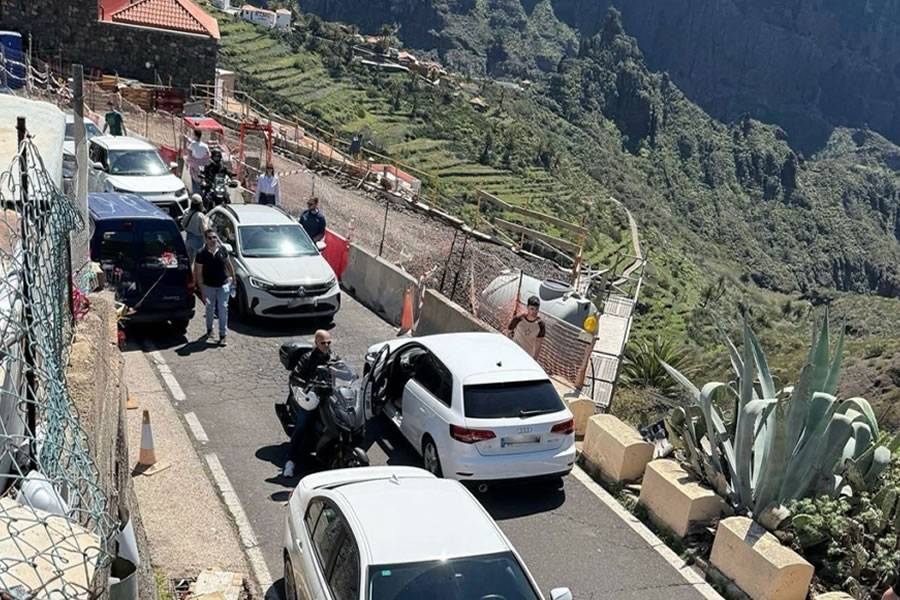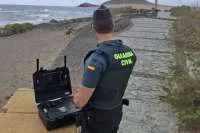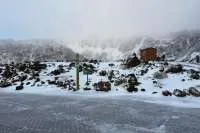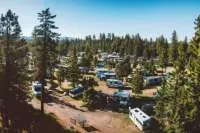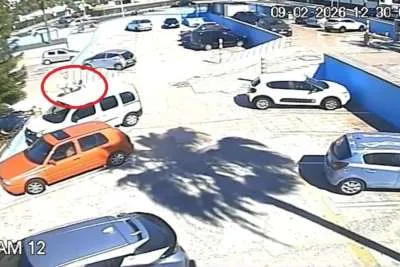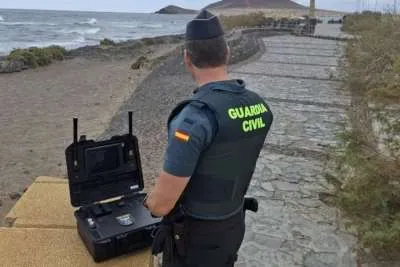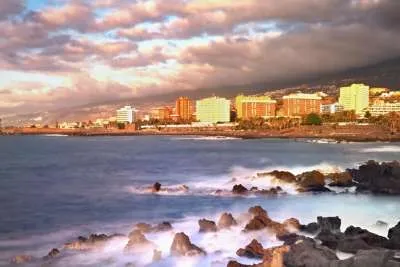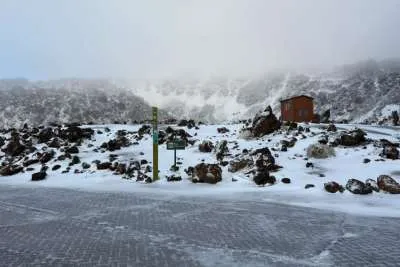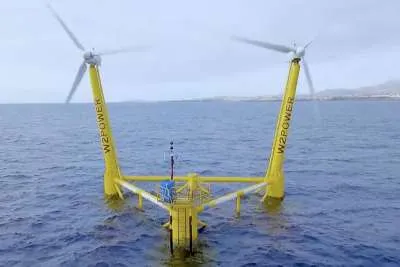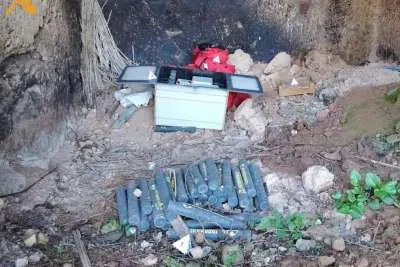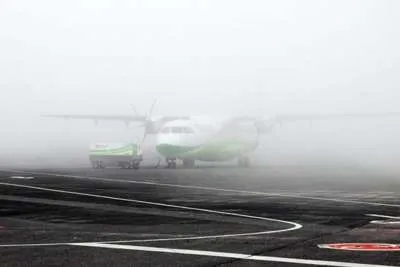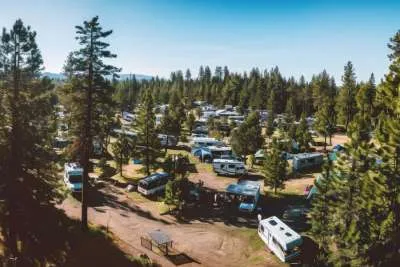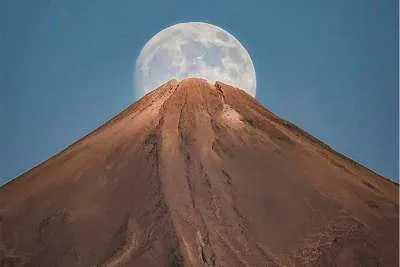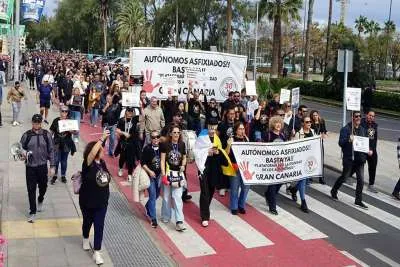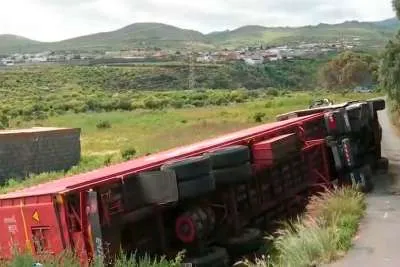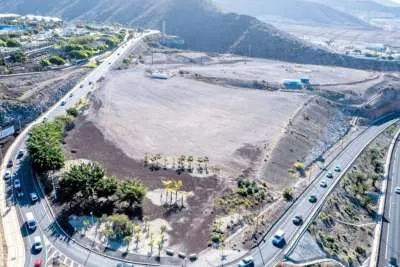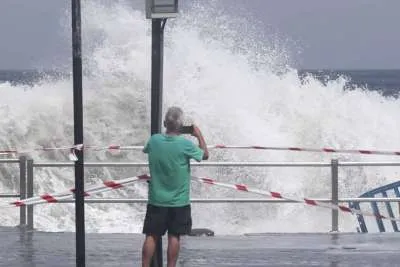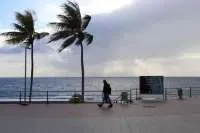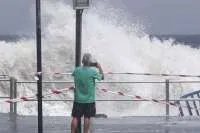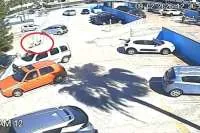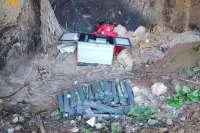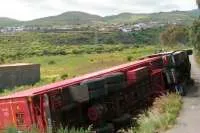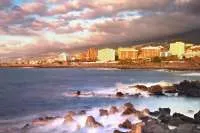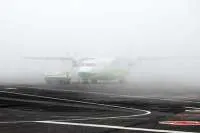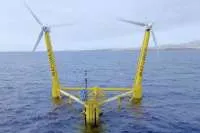Residents of Masca raise alarm over safety and overcrowding amid surge in tourism
- 30-03-2025
- Tenerife
- Canarian Weekly
- Photo Credit: Europa Press
Residents of Masca in the west of Tenerife, are voicing growing concern over what they describe as the daily collapse of the area’s traffic and a serious lack of infrastructure and public resources.
The popular destination, now referred to by some as the “Spanish Machu Picchu,” is becoming, in the words of local residents, a “tourist theme park”, but at the cost of the safety and quality of life for those who live there.
The local residents’ association, led by its president Jorge Javier Díaz, is preparing a formal document outlining their demands, which will be submitted to both the local council and the island’s governing body, the Cabildo de Tenerife.
At the heart of their appeal is the need for urgent measures to regulate traffic, improve safety, and enhance public services in the face of overwhelming visitor numbers.
According to Díaz, residents are struggling with their daily routines due to a combination of tourism pressure and disorganised infrastructure. Chief among their concerns is the lack of police presence, insufficient parking, and poor signage throughout the area.
He claims that illegal parking is a persistent issue, while thefts at viewpoints have become alarmingly frequent. “There are robberies at the viewpoints practically every day,” he said, adding that while the Guardia Civil is doing its best with limited resources, “what we need is a visible police presence.”
The condition of the only access road is another major issue. Built by the residents themselves between the 1960s and 1980s, the narrow, single-lane road is now overwhelmed by cars and tour buses.
More passing points, resurfacing, and even road widening is urgently needed, says Díaz. He also dismisses the idea that traffic lights or mobile apps can meaningfully resolve the situation. “These might help a little, but they don’t solve the real problem. Many of the issues would be resolved with police presence and a tow truck,” he stressed, noting that officers might fine a badly parked vehicle, but with no tow truck available, the obstruction remains.
Díaz estimates that there are only around 50 legal parking spaces in the area, making illegal or inconsiderate parking a frequent occurrence, especially due to the lack of clear signage. “Tourists don’t see any signage and end up parking in private driveways or village access roads,” he said.
Dispute Over Access Fees and Property Rights
Adding to the residents' frustration is the access fee introduced by the Cabildo last summer. This fee, applied to non-residents for regulated entry to the Masca ravine, was implemented without what residents consider proper consultation or consent, particularly given that parts of the access route cross privately owned land.
“The riverbed of the ravine may be public,” Díaz explained, “but parts of the access path run through private properties.” Residents have presented property deeds to the authorities and are awaiting further discussions with the Cabildo.
In a recent act of protest and self-determination, the residents informed the Cabildo that they would be changing the lock on one of the access gates, and have since done so. “Two weeks ago, we sent a letter to the Cabildo saying we were going to change the lock. Now, we have the key. Until then, we didn’t,” Díaz confirmed.
While residents support the idea of regulating tourism access to preserve the natural site and improve safety, they insist on being consulted throughout the process. “We’ve seen the madness of some people who come here,” he said, “so we agree that rules are needed. But we also need to be heard.”
“Everything is being designed with tourists in mind,” Díaz concluded, “but when will someone think about the residents?”
Other articles that may interest you...
Trending
Most Read Articles
Featured Videos
TributoFest: Michael Buble promo 14.02.2026
- 30-01-2026
TEAs 2025 Highlights
- 17-11-2025


